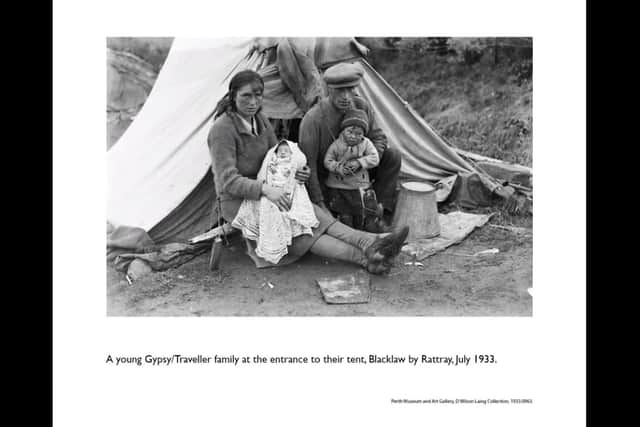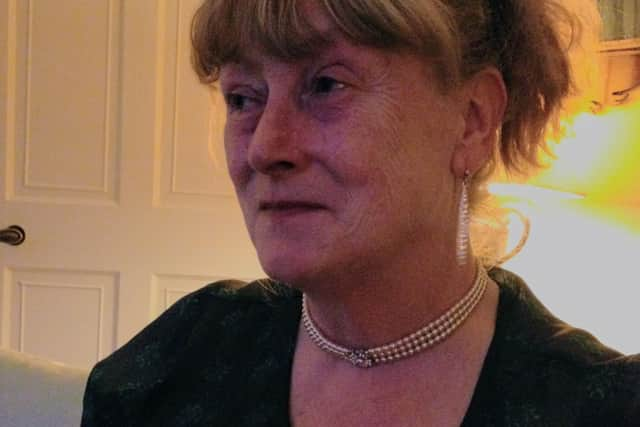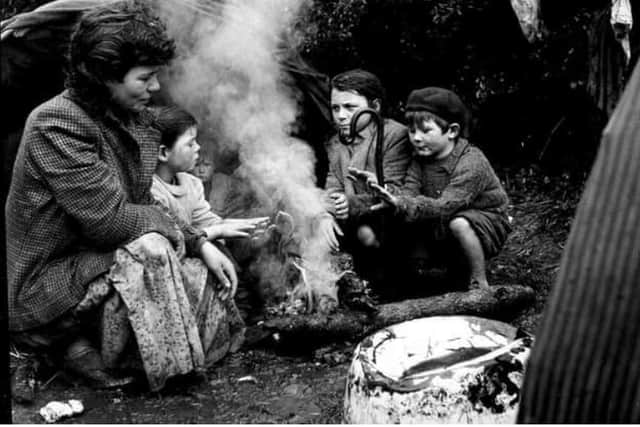New dictionary of Scots charts the language of travelling community
A new dictionary that charts the language of Scotland’s traveller community and how it impacted everyday Scots has been published for the first time.
The Language of the Scottish Traveller: A Dictionary, written by Pauline Cairns Speitel, has been more than a decade in the making and tracks words, their root and meaning over centuries.
Advertisement
Hide AdAdvertisement
Hide AdMs Cairns Speitel, an editorial language consultant at the Dictionaries of the Scots Language, first became interested in the Scots of the travelling community following the publication of the classic Yellow on the Broom, the first part of the autobiography by Perthshire traveller Betsy Whyte, which was first published in 1979.


Ms Cairns Speitel, who was working as a book editor at the time, said: “There were words in there that I grew up with and I said to Betsy ‘I think we need to do a glossary’. Fast forward all these years and we now have this dictionary.
"The point of the dictionary is to try and draw all the language of travellers and gypsies together and to pull the words – the weird ones and the shared ones – in one place.
"Not all of these words have been brought together in one document before and it’s important to do so. I don’t think these words are necessarily dying as such, but they are fading.”
The dictionary, which has some 3,400 entries, was launched at Edinburgh University with speakers including writer Jess Smith, whose work focuses on the experiences of Scottish Travellers, and philologist Professor Jeremy Smith.


Ms Cairns Speitel, who grew up in Edinburgh, said several words which were once common in the city came from the Romany language, which is rooted in North India, related to Sanskrit and reflects the lineage of some Scottish travellers.
One such word is ‘nash’ which means ‘to hurry' – as in ‘is that the time, I’ve got tae nash’. The word stems from the Sanskrit naś, which means to be lost, disappear or run away.
Another common word heard in parts of Scotland that has its roots in Sanskrit is ‘barry’ or 'barrie’, which was commonly used to describe something as very good or special. Meanwhile, the word ‘barry montyclear’ is used to describe the sea.
Advertisement
Hide AdAdvertisement
Hide Ad‘Gadgie’ was once commonly heard in Scotland to describe a man. In the travelling community, it is used to describe a stranger or a non-traveller. It possibly stems from the Romany ‘gorgio’ for non-Gypsy or is perhaps linked to the Scots word ‘cadger’ for a travelling merchant.


Meanwhile, ‘ackie-peevie’ translates as whisky, with the word blending ‘aqua’ for water and the Romany péava, which translates as ‘to drink’.
Ms Cairns Speitel said: “In the bad old days, traveller children were treated like absolute dirt, but they had to go to school and some of these words would have gone in to use at the school as the children mixed with the settled population. Then travellers are going all around the country, picking up different Scots dialects, whether they be down in the Borders or up in Caithness and Wick.”
Scotland's traveller and gypsy community is today made up of around 15,000 to 20,000 people.
The online dictionary can be found at https://travellers.scot/
Comments
Want to join the conversation? Please or to comment on this article.